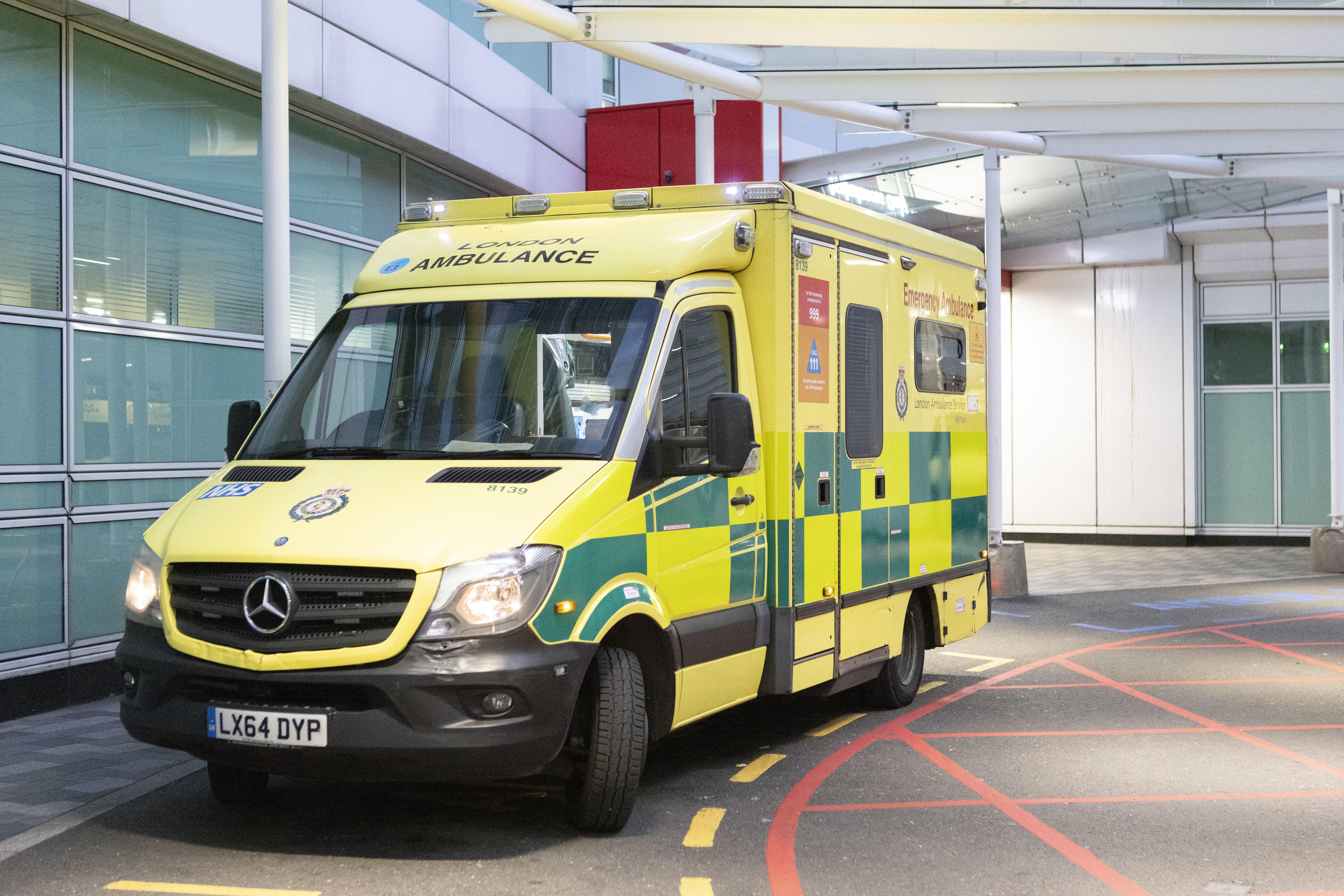Hospitals urged to free up beds ahead of ambulance crew strikes
Ambulance crews in England are set to walk out for two days on December 21 and 28 over pay.

Health chiefs have urged hospitals to free up a maximum number of beds by safely discharging patients in advance of industrial action by ambulance crews.
Sir David Sloman, NHS England’s chief operating officer, warned of “extensive disruption” during what would be “a very challenging period”.
Ambulance crews in England are due to walk out for two days on December 21 and 28 in support of their pay claim.
Measures should also be put in place to ensure ambulance patient handovers are kept to no more than 15 minutes, Sir David said in a joint letter with national medical director Professor Sir Stephen Powis and chief nursing officer Dame Ruth May to NHS trusts and integrated care boards (ICBs).
NHS data on Thursday showed ambulance handover delays at hospitals in England had hit a new high, with one in six patients last week waiting more than a hour to be passed to A&E teams.
Just over one in three had to wait at least 30 minutes. The numbers are higher than at any point in recent winters.
NHS Providers’ interim chief executive Saffron Cordery said in response: “Trust and system leaders are being asked by NHS England to focus on reducing handover delays and maximising capacity in urgent and emergency care.
“But given the scale of operational pressures on providers now including very high bed occupancy levels, rising flu admissions, ongoing Covid-19 pressures, record staff absences and increasing A&E attendances, this will be incredibly difficult to implement.”
She added: “We understand why ambulance staff have voted for industrial action but it’s vital that the Government and unions talk urgently to find a way to prevent this and further strikes from happening.”
Setting out “three essential actions” to “ensure the safety of patients and staff”, the letter asked for confirmation of “system-level operational plans” for ambulance strike days with NHS England regional teams by a deadline of 4pm on December 19.
The plans would allow for additional support to be considered and arranged, it said.
The Police Federation has already suggested police officers may be called upon to drive ambulances.
Advice from the health chiefs also included the prospect of creating “observation areas and additional beds” elsewhere in hospitals.
They called for acute, mental health, and community trusts to continue “to expedite the discharge of all patients who are clinically fit for discharge”.
They also asked for “steps to allow moving of patients who have completed their emergency medical care and are awaiting an inpatient bed out of the ED to create space for new patients”.
“This may involve the creation of observation areas and additional beds elsewhere in the hospital.”
The letter added: “Thank you for everything you have been doing to prepare to ensure that patients are kept as safe as possible and that services are maintained as effectively as possible over what will be a very challenging period.
“Derogation discussions with trade unions are ongoing at a local level, therefore the impact upon services will vary across different ambulance services, but extensive disruption is expected.”
Nine ambulance trusts in England expected to be affected by industrial action, co-ordinated by the GMB, Unison and Unite, on December 21 and eight ambulance trusts affected on December 28.
It comes after nurses staged their biggest-ever strike in the history of the NHS.
Bookmark popover
Removed from bookmarks